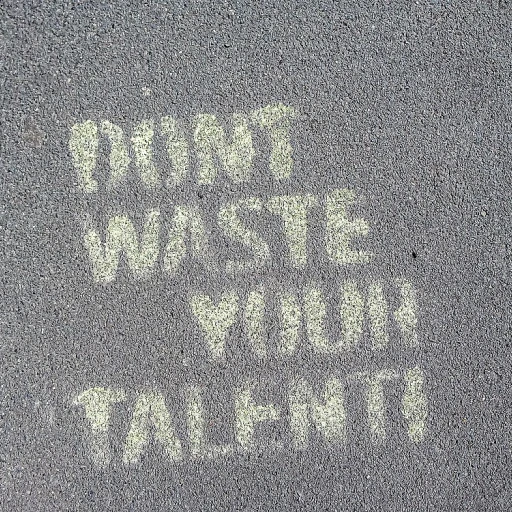
Understanding the difference between infractions and misdemeanors
Key Differences Between Infractions and Misdemeanors in Traffic Law
When it comes to driving, not all traffic offenses are treated the same under the law. Understanding the distinction between traffic infractions and misdemeanors is crucial, especially if you’re concerned about what might show up on your records during a background check.
Traffic infractions are typically minor violations, such as going a few mph over the speed limit or failing to signal. These are not considered criminal offenses. Most infractions result in a fine, points on your driver license, or mandatory traffic school, but they rarely lead to jail time. Examples include:
- Basic speeding tickets
- Parking violations
- Failure to yield
Misdemeanor traffic offenses, on the other hand, are more serious. These can include reckless driving, excessive speeding (well above the posted speed limit), or driving without a valid license. Misdemeanors are criminal violations and can carry heavier penalties, such as higher fines, possible jail time, and a permanent mark on your criminal record. Some states even classify certain speeding tickets as misdemeanors if the offense is severe enough.
Here’s a quick comparison for clarity:
| Type | Severity | Possible Penalties | Criminal Record? |
|---|---|---|---|
| Traffic Infraction | Minor | Fine, points, traffic school | No |
| Misdemeanor Traffic Offense | Serious | Higher fine, possible jail time, court appearance | Yes |
It’s important to know how your state classifies speeding tickets and other traffic violations. This classification can affect your driver license, insurance rates, and even your employment opportunities. If you’re interested in learning more about how to access local records, including traffic offenses, check out this guide to accessing county records for background checks.
Later sections will cover how different states handle speeding tickets, what appears on a background check, and what steps you can take if a traffic ticket is impacting your record.
How speeding tickets are classified in different states
How States Treat Speeding Tickets and Other Traffic Offenses
When it comes to speeding tickets and other traffic violations, the way each state classifies these offenses can be quite different. This matters a lot for anyone concerned about their driving record, especially if you’re worried about what might show up on a background check or how a ticket could impact your driver license. Some states treat most speeding tickets as simple traffic infractions. These are not considered criminal offenses, and usually just result in a fine or points on your license. However, in other states, certain speeding tickets can be classified as misdemeanors, especially if you were driving well above the posted speed limit or if your actions are considered reckless driving. In rare cases, extremely dangerous behavior on the road can even be charged as a felony traffic offense.- Traffic infractions: Minor violations like going a few mph over the speed limit. Usually not criminal, but can still add points to your record.
- Misdemeanor traffic offenses: More serious, such as excessive speeding or repeat violations. These can lead to court appearances, higher fines, and sometimes even jail time.
- Felony traffic violations: Rare, but possible if the offense involves injury, property damage, or extreme recklessness.
What shows up on a background check
What Background Checks Reveal About Traffic Offenses
When it comes to background checks, many people wonder if their driving history—especially traffic violations like speeding tickets—will show up. The answer depends on the type of background check and how the ticket was classified by the court. Generally, background checks focus on criminal records, but some also include driving records, especially for jobs involving a driver license or operating a vehicle.
- Traffic infractions such as minor speeding tickets usually do not appear on standard criminal background checks. These are considered violations, not crimes, and are often handled by paying a fine rather than going to court.
- Misdemeanor traffic offenses—for example, reckless driving or speeding far above the posted mph speed limit—can appear on both criminal and driving records. These are more serious than infractions and may involve court appearances, higher fines, or even jail time.
- Felony traffic offenses (rare, but possible with extreme cases like repeat DUI or causing serious injury) will almost always show up on a criminal background check.
Employers, especially those in transportation or roles requiring a clean driving record, may request a Motor Vehicle Report (MVR) in addition to a criminal background check. An MVR will list all traffic tickets, points, violations, and license suspensions. However, most routine employment checks focus on criminal offenses and misdemeanors, not minor traffic tickets.
It's important to know that state law and the classification of the offense play a big role in what appears on your record. For example, a speeding ticket that is classified as a misdemeanor in one state could be just an infraction in another. This impacts whether it is visible to potential employers or licensing boards.
For a deeper dive into how different types of offenses are reported and what background checks typically include, you can read more in our guide on FACIS Level 1M credit in modern background checks.
The impact of a misdemeanor speeding ticket on employment
How Employers View Misdemeanor Speeding Tickets
When a misdemeanor speeding ticket appears on your background check, it can raise questions for potential employers, especially if the job involves driving or managing company vehicles. Misdemeanor traffic offenses are more serious than simple infractions, and they may be treated as criminal violations under the law. This means a misdemeanor speeding ticket could show up in the criminal section of your records, not just your driving history.Potential Consequences for Job Seekers
A misdemeanor traffic violation, such as reckless driving or exceeding the speed limit by a significant margin (for example, 30 mph over), can impact your employment prospects in several ways:- Job Restrictions: Some employers have strict policies against hiring individuals with recent misdemeanor traffic offenses, especially for roles that require a clean driver license.
- Insurance Concerns: Companies may face higher insurance premiums if they hire drivers with misdemeanor speeding tickets or other serious traffic violations on their records.
- Trust and Responsibility: Employers may view a history of traffic misdemeanors as a sign of poor judgment or disregard for safety laws, which can affect your chances of being hired for positions of responsibility.
Factors That Influence the Impact
The effect of a misdemeanor speeding ticket on your job search depends on several factors:- Type of Offense: Felony traffic offenses, such as hit-and-run or DUI, are more damaging than misdemeanor speeding tickets, but both can be red flags.
- Recency: Recent violations are more likely to influence hiring decisions than older offenses.
- Frequency: Multiple traffic tickets or a pattern of traffic infractions may suggest ongoing risky behavior.
- Job Requirements: Positions that involve driving, operating heavy equipment, or managing others' safety will be more affected by traffic misdemeanors.
Legal and Practical Considerations
If you have a misdemeanor traffic violation on your record, you may want to consult an attorney or criminal defense expert. In some cases, it may be possible to reduce the offense to a lesser violation or have it expunged from your records. Courts may also allow drivers to attend traffic school or pay a fine instead of facing jail time, depending on the severity of the offense and local laws. Employers are required to follow fair hiring practices, but they can consider criminal and traffic records as part of their background check process. Being transparent about your driving history and showing evidence of responsible behavior since the violation can help mitigate the impact on your job search.Steps to take if a speeding ticket appears on your record
What to Do When a Speeding Ticket Appears on Your Background Check
If you discover a speeding ticket or other traffic violations on your background check, it’s important to know your options. Traffic offenses, especially those classified as misdemeanors, can sometimes impact employment opportunities or your driver license status. Here’s how to handle the situation:- Review Your Records Carefully
Obtain a copy of your driving and criminal records from your state’s Department of Motor Vehicles or relevant court. Double-check for accuracy, as errors in reporting traffic infractions or misdemeanors are not uncommon. - Understand the Classification
Determine if the ticket is listed as a minor infraction or a misdemeanor traffic offense. Misdemeanors, such as reckless driving or excessive mph speed over the limit, carry more weight than simple violations infractions. - Check for Point Accumulation
Some states assign points for speeding tickets and other traffic offenses. Accumulating too many points can lead to license suspension or higher insurance premiums. Understanding your state’s point system is crucial. - Consult a Criminal Defense Attorney
If a misdemeanor or felony traffic offense appears on your record, seek legal advice. An attorney can help you understand the implications and may assist in reducing the charge or expunging the offense, depending on the law in your state. - Address Errors Promptly
If you find inaccuracies, contact the reporting agency or court to dispute the information. Providing documentation, such as court records or proof of fine payment, can help correct your records. - Prepare for Employer Questions
Be ready to explain the circumstances of any traffic ticket or misdemeanor traffic violation during job applications. Honesty and context can make a difference, especially if the offense did not involve reckless driving or jail time.
Recent trends in background check reporting for traffic violations
Growing Scrutiny of Traffic Offenses in Background Checks
In recent years, background check providers and employers have started to pay closer attention to traffic violations, especially those that go beyond simple infractions. While minor speeding tickets or traffic infractions often do not raise red flags, more serious offenses like misdemeanor traffic violations, reckless driving, or repeated speeding tickets are increasingly being flagged during pre-employment screenings.
State Law Changes and Reporting Practices
Several states have updated their laws and reporting practices, making it easier for certain traffic offenses to appear on background checks. For example, some states now classify high-mph speed violations or repeat offenses as misdemeanors, which can show up in criminal records. This means that a driver license suspension, a court-ordered fine, or even jail time related to a traffic offense may be visible to potential employers or licensing boards.
- States differ in how they classify and report traffic tickets and violations infractions.
- Some jurisdictions treat excessive speeding or reckless driving as felony traffic offenses, which carry heavier consequences.
- Background check companies are updating their systems to capture more detailed records, including traffic misdemeanors and criminal traffic violations.
Impact of Technology and Data Sharing
Advancements in digital record-keeping and data sharing between courts, DMVs, and background check agencies have made it easier to access and report traffic tickets, speeding tickets, and other driving offenses. As a result, even older or out-of-state violations may now appear in background checks, especially if they involved a misdemeanor or criminal charge.
What This Means for Drivers and Job Seekers
If you have a history of traffic violations, especially those classified as misdemeanors or felonies, it is important to know how these might impact your background check. Consulting with an attorney or a criminal defense expert can help you understand your rights and options for addressing or expunging certain records. Staying informed about recent trends in background check reporting can also help you prepare for questions from employers or licensing authorities regarding your driving record, fines, or any court involvement related to traffic offenses.













